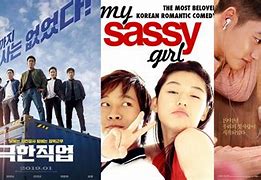Introduction: Korean Movies That Explore Social Issues
Korean cinema has long been known for its rich storytelling, compelling characters, and stunning visuals. But beyond entertainment, many Korean films have delved deep into social issues, offering poignant reflections on the country’s struggles, cultural shifts, and societal challenges. These movies not only entertain but also provide insight into the complex web of problems facing individuals and communities in South Korea.
Whether it’s dealing with class disparity, mental health, gender inequality, or the ever-evolving role of technology in society, Korean filmmakers have been unflinching in their exploration of these themes. So, if you’re a cinephile interested in movies that go beyond the surface, this article will take you on a journey through some of the most powerful Korean films that highlight significant social issues.

Why Do Korean Movies Tackle Social Issues?
Korean society is evolving rapidly, and filmmakers have served as both witnesses and critics of these changes. The country’s dramatic transformation from a war-torn nation to a global powerhouse has sparked a host of cultural shifts. While Korea’s economic boom has brought prosperity to many, it has also exacerbated social divides. As such, Korean movies often explore themes of social injustice, alienation, and identity crises.
Films allow audiences to engage emotionally with these difficult topics, creating a space for dialogue, empathy, and understanding.
Exploring Korean Movies That Tackle Social Issues
1. Parasite (2019): A Reflection on Class Struggles
No list of Korean films exploring social issues would be complete without Parasite (2019), the film that took the world by storm, winning multiple Academy Awards, including Best Picture. Directed by Bong Joon-ho, Parasite is a sharp commentary on the divide between the wealthy and the poor in South Korean society.
The film follows the Kim family, who live in poverty, as they infiltrate the lives of the rich Park family by taking up various jobs within their household. Through dark humor and dramatic tension, Parasite highlights the stark contrasts between these two social classes, offering a brutal critique of capitalism and the lengths people will go to escape poverty. The film’s themes of inequality and exploitation resonate deeply, making it an essential work in understanding modern social issues in Korea.
2. Burning (2018): Mental Health and Class Division
Burning (2018), directed by Lee Chang-dong, is an atmospheric and slow-burn film that explores themes of obsession, isolation, and class division. The film centers on a young man named Jong-su who reconnects with an old friend, Hae-mi, and becomes intrigued by her mysterious new acquaintance, Ben.
While Burning can be interpreted in various ways, it provides a stark portrayal of mental health struggles, alienation, and the economic inequality that underpins modern South Korea. The film highlights how social class can affect relationships, aspirations, and identity, and the characters’ internal struggles reflect the tension between personal desires and societal pressures.
3. The Housemaid (1960): Gender Inequality and Social Hierarchy
The 1960 classic The Housemaid, directed by Kim Ki-young, offers a powerful critique of gender inequality and the rigid social hierarchy of 1960s Korea. The story revolves around a middle-class family whose lives are turned upside down when they hire a seductive housemaid who disrupts their seemingly perfect household.
This film is often cited as an early example of Korean cinema exploring gender roles, particularly the power dynamics between men and women. The Housemaid portrays the vulnerability of women within a patriarchal society, drawing attention to the limited agency women had at the time. It’s a chilling look at how power, jealousy, and social expectation can tear a family apart.
4. Oasis (2002): Disability and Society’s Prejudices
In Oasis (2002), director Lee Chang-dong explores the harsh realities faced by people with disabilities in Korean society. The film follows the relationship between a man recently released from prison, who has a history of violent behavior, and a woman with cerebral palsy. Despite their deeply rooted societal and personal struggles, they develop an unconventional and poignant relationship.
Oasis is a raw exploration of how society views and often rejects those with disabilities. The movie underscores the stigma and isolation faced by individuals with physical or mental challenges, offering a powerful commentary on empathy, acceptance, and the human need for connection.

5. The Chaser (2008): Crime, Corruption, and Justice
The Chaser (2008), directed by Na Hong-jin, is a gritty crime thriller that delves into the corrupt underbelly of South Korean society. The story follows a former detective-turned-pimp as he hunts down a serial killer responsible for the disappearance of several women.
While The Chaser is primarily a suspenseful crime drama, it also explores issues of police corruption, systemic failure, and the human cost of neglecting justice. The film’s depiction of societal corruption and the blurred lines between right and wrong calls attention to broader issues within Korea’s legal and law enforcement systems.
6. The Queen of Black Magic (2019): Poverty and Family Bonds
Although The Queen of Black Magic (2019) is a horror film at its core, it also serves as a deep exploration of poverty and the lengths to which individuals will go to protect their families. The film follows a man who returns to his childhood home with his family and uncovers dark secrets about his past, including the exploitation of the poor by the wealthy.
At its heart, the film portrays the power dynamics in South Korean society, particularly regarding the poor and vulnerable. The family’s struggle to survive amidst economic hardship is presented in a supernatural context, but the film’s commentary on social injustice and familial loyalty is undeniably grounded in reality.
7. Paju (2009): Trauma, Grief, and South Korea’s Divided History
Paju (2009), directed by Park Chan-ok, is a moving exploration of trauma, grief, and the effects of South Korea’s divided history. The film follows a woman named Joong-rae, who moves to the city of Paju to escape her past and start anew. There, she forms a complex relationship with a man whose tragic history intertwines with hers.
Set against the backdrop of South Korea’s political divide, Paju sheds light on the emotional scars left by the country’s history of division and conflict. The film also delves into themes of personal redemption and healing, showcasing how individuals navigate grief while confronting the lasting impact of national trauma.
8. I Can Speak (2017): Historical Trauma and National Identity
In I Can Speak (2017), a seemingly light-hearted comedy-drama, director Kim Hyun-seok explores the deep psychological scars left by the Japanese occupation of Korea and its lingering effects on the national consciousness. The film follows an elderly woman who seeks out the help of a government official to learn English, only to reveal that she is a “comfort woman” who was forced into sexual slavery during World War II.
The film’s treatment of this historical trauma serves as a reminder of the atrocities faced by the victims and the emotional and psychological toll it took on them. I Can Speak raises questions about collective memory, historical accountability, and national identity, urging viewers to confront past injustices for the sake of healing.
9. Secret Zoo (2020): Workplace Exploitation and Corporate Greed
Secret Zoo (2020) is a dark comedy that satirizes corporate culture and workplace exploitation in South Korea. The film follows a young lawyer who, in an attempt to save his job, is asked to transform a failing zoo into a success. However, his solution—dressing up employees as animals—reveals the absurdity of the expectations placed on workers in a society driven by corporate greed.
The film humorously critiques the exploitation and pressure faced by employees in a highly competitive corporate environment. Through its exaggerated storyline, Secret Zoo forces viewers to question the human cost of success in a corporate-driven society.

10. The Age of Shadows (2016): Resistance and Nationalism
Set during the Japanese occupation of Korea, The Age of Shadows (2016) explores themes of resistance, nationalism, and the fight for independence. Directed by Kim Jee-woon, the film follows a Korean resistance group’s attempts to sabotage the Japanese occupation force’s efforts to build a railway system that will aid their war efforts.
The film’s exploration of resistance movements and patriotism taps into the nationalistic sentiment still prevalent in Korea today. It speaks to the ongoing struggle for national identity and independence in the face of foreign oppression.
Read This Royal Regalia: A Timeless Tapestry of Power and Elegance
Conclusion: Korean Movies That Explore Social Issues
Korean cinema has long been a vehicle for exploring social issues, offering a window into the complexities of South Korean society. Whether it’s dealing with the impacts of economic disparity, gender inequality, or the lasting effects of historical trauma, these films provide critical insights into the challenges individuals and communities face. Through their gripping stories and multifaceted characters, these movies push us to reflect on our shared humanity and consider the social structures that shape our lives.
As Korean cinema continues to evolve, it’s likely that these social issues will remain at the forefront, ensuring that films remain not only a source of entertainment but also a catalyst for social change and conversation.
Meta Description: Dive into the world of Korean movies that explore social issues, from class struggles to mental health, and discover how these films portray contemporary social concerns.
FAQs
- What are the main themes explored in Korean movies? Korean movies often tackle themes such as class inequality, mental health, gender roles, historical trauma, and corporate exploitation. These films provide nuanced portrayals of societal challenges and individual struggles.
- Why are Korean movies so popular internationally? Korean movies have gained global popularity due to their unique storytelling, strong character development, and ability to address universal themes in a relatable manner. Films like Parasite have garnered attention for their engaging narratives and social relevance.
- How do Korean filmmakers portray social issues in their films? Korean filmmakers use powerful storytelling techniques, including dark humor, suspense, and deep character studies, to shed light on social issues. These films often present realistic portrayals of social injustices, making the audience reflect on societal dynamics.
- What impact have Korean movies had on social discourse? Korean films have sparked discussions on critical social issues, such as wealth inequality, gender discrimination, and historical reconciliation. They encourage audiences to think critically about social structures and the need for change.
- Are there more recent Korean films addressing social issues? Yes, recent films like Secret Zoo (2020) and The Queen of Black Magic (2019) continue to address pressing social topics such as workplace exploitation, corporate greed, and poverty. These films reflect the evolving concerns of modern Korean society.


